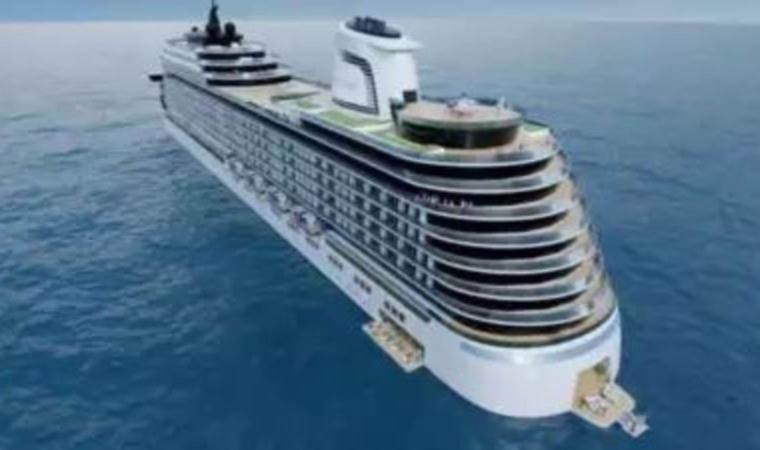World's largest cruise ship launches amid methane emission concerns
The world's largest cruise ship, Royal Caribbean International's Icon of the Seas, embarks on its maiden voyage this Saturday from Miami. Despite its grandeur and the booming popularity of cruises, environmental groups are raising alarms about the potential methane emissions from this liquefied natural gas (LNG)-powered vessel and its successors.

The ship, with a capacity for 8,000 passengers across 20 decks, runs on LNG, a cleaner-burning alternative to traditional marine fuel. However, environmentalists argue that methane leakage from the ship's engines poses a significant climate risk due to its short-term harmful effects. Bryan Comer, director of the Marine Program at the International Council on Clean Transportation (ICCT), criticizes the move as a step backward. "Using LNG as a marine fuel emits over 120% more life-cycle greenhouse gas emissions than marine gas oil," he states.
Methane, in terms of warming effects, is 80 times more potent than carbon dioxide over 20 years, making its reduction crucial for global temperature control. Cruise ships like Icon of the Seas employ low-pressure, dual-fuel engines that release methane during combustion, a process known as "methane slip." Alternative engines emitting less methane are too tall for cruise ships.
Despite these concerns, Royal Caribbean highlights the ship's 24% improvement in carbon efficiency over International Maritime Organization (IMO) standards. Steve Esau, chief operating officer of Sea-LNG, points out that LNG emits fewer greenhouse gases than the very low sulfur fuel oil (VLSFO) used by most ships.
Juha Kytölä, director of R&D and Engineering at Wärtsilä, the developer of the ship's engines, emphasizes the importance of converting all-natural gas to energy in the engine cylinders to minimize escape during combustion. Wärtsilä's technology has reduced methane emissions by 90% compared to 20-30 years ago.
Current cruise ship engines average a methane slip of 6.4%, in contrast to the IMO's assumption of 3.5%, according to 2024 research funded by ICCT and others. "Methane is under increasing scrutiny," says Anna Barford, Canada shipping campaigner at Stand Earth, noting the IMO's commitment to addressing methane in its greenhouse gas reduction efforts.
Of the 54 ships ordered from January 2024 to December 2028, the Cruise Line International Association expects 63% to be LNG-powered, a significant increase from the current 6% of the 300 cruising ships.
Newer cruise ships are being designed to run on various fuels, including traditional marine gas oil, LNG, and bio-LNG, a minor component of U.S. fuel consumption. Nick Rose, Royal Caribbean's vice president of environmental, social, and governance, assures that the company will adapt to different fuels as the market evolves. "LNG is just one part of our broader strategy," he says.
Most Read News
-
 Three threats to the UN order
Three threats to the UN order
-
 30 countries, EU Commission call for immediate cessation
30 countries, EU Commission call for immediate cessation
-
 Emails show Israeli government managed security at Manha
Emails show Israeli government managed security at Manha
-
 US-Israel attack on Iran could last weeks, be regime-thr
US-Israel attack on Iran could last weeks, be regime-thr
-
 South Korea jails ousted President Yoon for life over ma
South Korea jails ousted President Yoon for life over ma
-
 Tusk urges Polish citizens to leave Iran immediately ami
Tusk urges Polish citizens to leave Iran immediately ami
-
 Israel on high alert as US weighs possible strike on Ira
Israel on high alert as US weighs possible strike on Ira
-
 UK's ex-Prince Andrew arrested on suspicion of misconduc
UK's ex-Prince Andrew arrested on suspicion of misconduc








